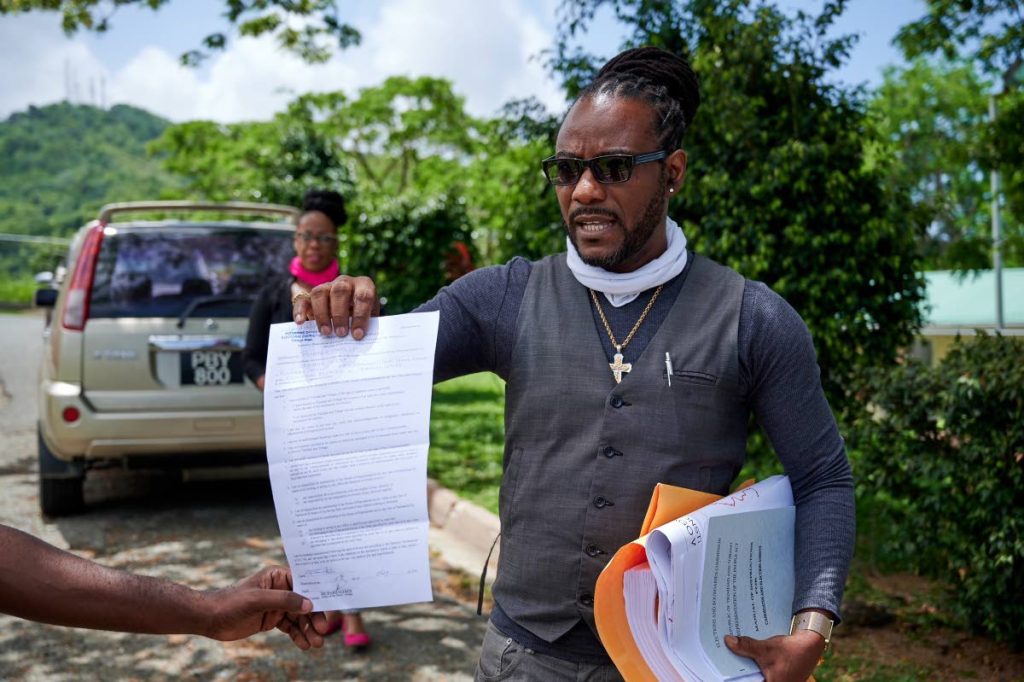Phillip not surprised Tobago ‘autonomy’ bills at a standstill

Class Action Reform Movement political leader Ricardo Phillip says he is not surprised the debate on the Joint Select Committee’s (JSC’s) report on the Tobago “autonomy” bills is at a standstill.
The two pieces of legislation – the Tobago Self-Government Bill and the Tobago Island Administration Bill- were debated in the House of Representatives on June 28 and 29.
The debate reached the committee stage but no vote was taken as there were no Opposition MPs in the House. This was because the UNC MPs, led by Opposition Leader Kamla Persad-Bissessar, walked out of the Parliament chamber after the Prime Minister was allowed an additional 60 minutes to wind up the debate on the government motion.
The motion called for the House to adopt the JSC’s report on the bills, which require a three-fifths majority for passage.
On Friday, Dr Rowley moved a motion in the House to have consideration of the bills resume on during the Second Session of the 12th Parliament at the committee of the whole stage in September after the July-August recess. The motion was passed.
Phillip, a businessman, had unsuccessfully contested the Tobago West seat in the August 10, 2020, general election as well as the Buccoo/Mt Pleasant electoral district in the January 25 THA election.
He told Newsday he was not surprised that the debate of the Tobago “autonomy” bills has resulted in chaos.
“My understanding is that the majority of Tobagonians have not decided what type of autonomy or internal self-government they would like to see,” Phillip said.
“It is always chaotic when political parties pursue these ideals.”
He said civil society should have led the public consultations on self-government for Tobago with input from political parties and other sectors.
Phillip believes since Arthur NR Robinson, former prime minister and president, moved the motion for internal self-government for Tobago in 1977, “We have not made significant progress in the understanding of what autonomy means for the island.”
He believes political parties have promoted their own interpretation of it while the rest of Tobago had another version.
Phillip said, as a result the people are totally confused.
“What should have happened over the years is that there should have been a public referendum on constitutional reform for about six months. This would have ensured that people have the chance to debate and their ideas be heard.”
Phillip claimed the consultations that have taken place over the years “only treat with those who believe that they have a better understanding than the rest of us.
“This contempt for Tobago has made this process a fraud on the people of Tobago. How could you pursue an ideal on my behalf and you really have not taken my views into consideration?”
Phillip believes politicians have not been honest with the people.
“If you are talking about autonomy and internal self-government, the idea is for some form of independence. You want control and some form of management of your own affairs.
“But in a unitary arrangement, that ideal is not going to happen and that is what they are not telling the people.
“It is impossible in a unitary state to give you any independence without responsibility and accountability.”
Phillip said he supports aspects of the legislation.
“Nothing is wrong with Tobago wanting some power because the island has always been like a back burner for Trinidad.”


Comments
"Phillip not surprised Tobago ‘autonomy’ bills at a standstill"